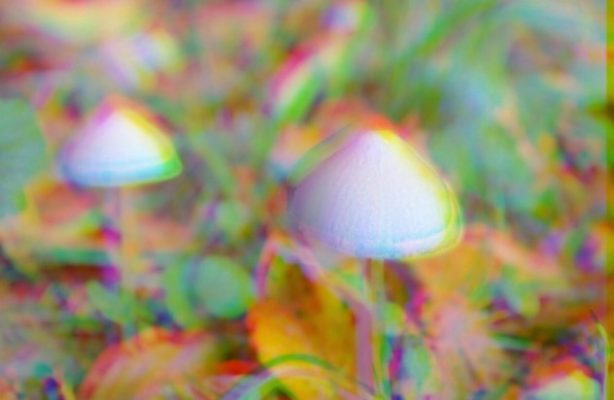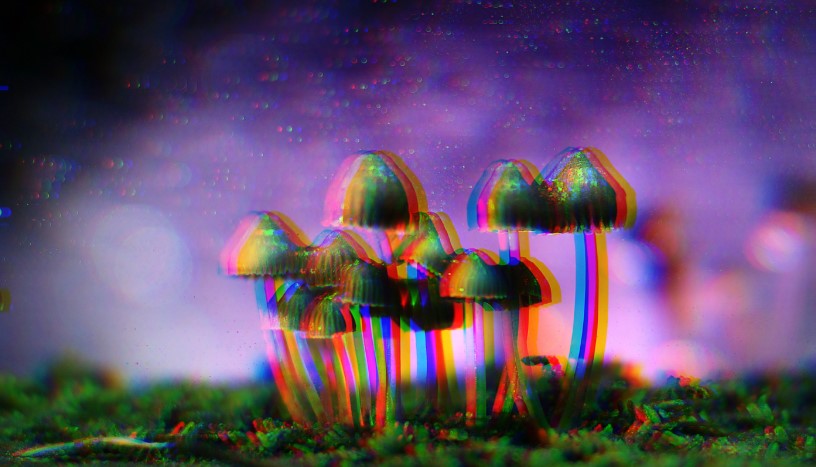psilocybin, Psychedelics
effects of psychedelic mushrooms on health
Assessing the Risks and Benefits of Eating Psychedelic Mushrooms
Introduction
Psychedelic mushrooms, or psilocybin mushrooms, are a type of fungi that contain the psychoactive compound psilocybin. This compound produces hallucinogenic effects when ingested and can be found in various species of mushroom around the world. When taken in small doses, these mushrooms have been known to produce feelings of euphoria, increased creativity and altered states of consciousness. At higher doses, they can cause hallucinations and other psychedelic experiences. In recent years, there has been an increasing amount of research into the potential mental health benefits associated with psychedelics like those found in psychedelic mushrooms. Studies suggest that these compounds may help reduce anxiety and depression as well as treat addiction by helping people gain insight into their behaviors and thought patterns.
History
The history of psychedelic mushrooms can be traced back to the ancient cultures of Central and South America, where they were used in spiritual rituals and ceremonies. One of these early cultures was the Aztecs, who believed that consuming these mushrooms would bring them closer to their gods. In modern times, psychedelics like psilocybin have been widely studied for their potential medical benefits. Clinical trials have shown promise in treating a variety of conditions including depression, anxiety and addiction.
Psychedelic mushrooms are also popularly used recreationally by people seeking altered states of consciousness or an escape from reality. They can be taken either orally or through inhalation via smoking or vaporizing dried mushroom powder. The effects vary depending on the dose consumed but often include visual distortions such as trails behind moving objects, bright colors and patterns appearing before one’s eyes, feelings of euphoria and enhanced creativity. It is important to note that there are some risks associated with using psychedelics such as unpredictable reactions which may lead to panic attacks or bad trips if not taken responsibly under proper supervision.
Psychedelic mushrooms have long been revered by various cultures around the world for their ability to induce altered states of consciousness and provide insight into one’s inner thoughts and emotions. As research continues into the possible therapeutic benefits associated with these compounds, they will continue to gain increasing respect within both scientific communities as well as amongst laypeople looking for new methods of healing themselves mentally or spiritually
Mechanism of Action
The mechanism of action behind psychedelic mushrooms is still not fully understood, but research suggests that the active compound, psilocybin, interacts with brain receptors involved in regulating serotonin. When ingested, this compound binds to serotonin 5-HT2A receptors located in parts of the brain associated with emotion and cognition. This binding causes a cascade of effects on other neurotransmitters such as dopamine and glutamate resulting in changes to one’s mood or perception.
The biological effects of psychedelics vary depending on the dose consumed and can range from mild sensory alterations like increased color intensity or auditory distortions to intense hallucinations which may persist long after drug use has ceased. Studies have shown that these compounds can also induce what some refer to as “mystical experiences” where users feel connected to something greater than themselves and experience feelings of unity or spiritual awareness. In addition, there appears to be an antidepressant effect caused by psychedelics which could explain why they are being increasingly studied for their potential therapeutic benefits in treating depression and anxiety disorders.
While more research is needed before any definitive conclusions can be made about how psychedelic mushrooms work in the brain, it is clear that these fascinating compounds produce complex psychological effects unlike anything else found in nature. With further study into their mechanism of action we may discover new ways to treat mental health disorders while providing people a unique insight into their inner selves through altered states of consciousness
Medical Uses
Medical uses of psychedelics have become increasingly prominent in recent years as research into their potential benefits continues to grow. These compounds have been found to be effective at treating a wide range of mental health disorders, including depression, anxiety and post-traumatic stress disorder (PTSD). Studies suggest that psychedelic experiences can help patients gain insight into their emotions and behaviors which may lead to more long-lasting positive effects than those seen with traditional pharmacological treatments.
Psychedelics are also being explored for their potential role in helping people overcome drug addiction. Research suggests that these compounds can produce powerful insights into the underlying causes of addiction while simultaneously providing relief from cravings and withdrawal symptoms associated with quitting drugs like opioids or alcohol. Psychedelic-assisted therapy has even been shown to reduce relapse rates among substance abusers when compared to conventional treatments alone.
In addition, there is growing evidence that psychedelics may be useful in managing chronic pain conditions such as fibromyalgia or migraines. A study conducted by Johns Hopkins University showed participants who took psilocybin reported significant reductions in both intensity and duration of migraine headaches after their treatment session was completed. Furthermore, studies using LSD show promising results when it comes to reducing physical pain caused by cluster headaches and cancer related issues such as nausea from chemotherapy or end of life distress syndrome due to terminal illness diagnoses.
The use of psychedelics for medical purposes is still relatively new but early clinical trials are showing promise for its applications in treating various physical and mental health disorders. As more research is done on these fascinating compounds we may discover further therapeutic benefits which could revolutionize the way many common ailments are treated today
Current Research
Current research into psychedelic mushrooms has yielded promising results in regards to their potential therapeutic benefit for various mental health conditions. One study conducted at Johns Hopkins University found that after just one dose of psilocybin, cancer patients reported significantly reduced levels of anxiety and depression as well as improved spiritual wellbeing. This finding suggests that these compounds may be effective in treating a variety of mood disorders including post-traumatic stress disorder (PTSD), obsessive-compulsive disorder (OCD) and generalized anxiety disorder (GAD).
In addition to its potential applications in the treatment of psychological issues, psychedelics are also being researched for their role in helping people overcome addiction. Studies suggest that psychedelic experiences can help individuals gain insight into the underlying causes of their substance abuse while providing relief from cravings and withdrawal symptoms associated with quitting drugs such as opioids or alcohol. Psychedelic-assisted therapy has even been shown to reduce relapse rates among substance abusers when compared to conventional treatments alone.
Finally, recent studies have explored the use of psychedelics for managing chronic pain conditions such as fibromyalgia or migraines with promising results. A study published by Johns Hopkins University showed participants who took psilocybin reported significant reductions in both intensity and duration of migraine headaches after their treatment session was completed. In addition, research using LSD shows positive outcomes when it comes to reducing physical pain caused by cluster headaches and end-of-life distress syndrome due to terminal illness diagnoses.
Looking towards the future, further clinical trials will be needed before definitive conclusions can be drawn about the effectiveness of psychedelic mushrooms for medical purposes but current evidence indicates they could revolutionize how many common ailments are treated today if utilized properly under professional supervision
Safety and Risks
When using psychedelics it is important to understand the potential risks associated with their use. The most common adverse effects include anxiety, elevated heart rate and blood pressure, nausea, vomiting, headaches, and dysphoria. Additionally, due to their unpredictable nature it is possible for a user to experience an unexpected “bad trip” which can be extremely frightening and overwhelming. In rare cases these bad trips may result in serious psychological distress or even suicidal thoughts if not handled properly.
In order to ensure safety when using psychedelics it is important to take certain precautions such as taking them under proper supervision from experienced professionals who are well-versed in administering psychedelic medicine. For those who choose to use psychedelics outside of a professional setting it is recommended that they do so with trusted friends or family members present along with having access to emergency medical support if needed. Furthermore, users should always start off at lower doses before increasing gradually as this will help reduce the risk of experiencing negative side effects or an unpleasant reaction. Finally, users should avoid combining psychedelics with alcohol or other substances in order to minimize potential harm.
Although there are some inherent risks involved with taking psychedelics these can be significantly reduced by following the aforementioned guidelines and taking appropriate precautions prior to consumption. With careful preparation and consideration one can maximize the chances of having a safe and positive experience while minimizing any potential harm that could occur from irresponsible drug use
Conclusion
In conclusion, the effects of psychedelic mushrooms are complex and far-reaching. These compounds produce a unique set of psychological experiences unlike any other found in nature. Not only have psychedelics been linked to antidepressant effects but research is also suggesting that they may be effective in treating a wide range of mental health conditions including depression, anxiety, PTSD, addiction and chronic pain. Furthermore, when taken responsibly under proper supervision these compounds can provide powerful insights into one’s emotions and behaviors while simultaneously offering relief from distressful symptoms associated with various disorders. As medical science continues to explore the potential therapeutic benefits of psychedelic mushrooms we may discover new ways to treat physical and mental health issues which could revolutionize how many common ailments are treated today.


